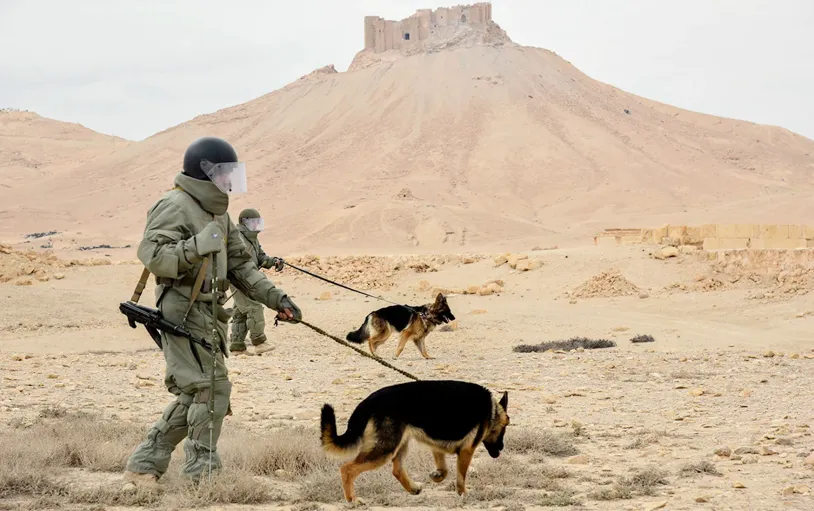Gennady Timchenko, a long-time friend of Vladimir Putin, on the one hand supports the course of the Russian authorities, while on the other he does not miss business opportunities. Now the billionaire will get involved in phosphate mining in Syria
Syrian President Bashar al-Assad approved a contract between the Oil Ministry and the Russian company Stroytransgaz Logistics, a subsidiary of Stroytransgaz, whose main owner is Gennady Timchenko #8, to produce phosphate from the ores of the Al-Sharqiya deposit in Palmyra, Enab Baladi newspaper reported. The deposit is located 45 kilometers southwest of Palmyra. According to the newspaper Al Watan, the Syrian Institute of Geology and Mineral Resources obtained a 30% share of the production. The contract is for 50 years, with an annual production capacity of 2.2 million tonnes and a total reserve of 105 million tonnes.
Timchenko did not start preparing for phosphate mining in Syria today – last June, Stroytransgaz began work on the restoration of the largest phosphate mines in Syria. A source close to the Syrian government told RBC that Damascus initially wanted to give the contract to restore the mines to Iran, but in the end the choice was made in favor of Russia.
Before the war, Syria exported phosphate ore, but its share in the global output at that time (2011) was small – about 3.5 million out of 180 million tons. Since then the global output of phosphate rock has increased significantly – up to 260 million tons, Vasily Tanurkov, deputy director of corporate ratings group ACRA told Forbes. Accordingly, the volume which Stroytransgaz is going to produce will be less than 1% of the world output. According to the expert, Russia is today almost self-sufficient in phosphate rock, the main producers being Phosagro, which is steadily increasing its production, and Akron, which started phosphate mining several years ago at the Oleniy Ruchey mine. Russia is one of the world’s major exporters of phosphate fertilisers, but only about 20% of production is used within the country.
As for the Middle East, local deposits are, in principle, profitable, Tanurkov believes. “Mining in Syria is likely to be economically attractive due to low labor costs and the fact that the deposit has been developed before and restoring production may not require the same large-scale investment as launching a new mine,” he explains. The investment phase for a new phosphate mine can last up to five years. In the case of the resumption of production, we can expect that this interval will be significantly reduced, the Forbes’ interlocutor said. The investor also benefits from the production sharing conditions (30/70). The average price per ton of apatite concentrate over the past 12 months was in the range of $80-100, thus, with 2.2 million tons of production, the annual revenue may reach about $200 million, the analyst concluded.
It is not yet clear to whom Timchenko is going to sell the phosphates. Both he and Stroytransgaz are under US sanctions. Washington has also imposed sanctions on the Syrian government and the local business elite. This means that neither the US itself, nor the countries that traditionally support their sanctions regimes will buy this ore.
At the same time, Timchenko has not fallen under EU sanctions and can trade with European partners. The EU imposed sanctions against Syria, Europeans are banned from buying oil, gas, military and dual-use goods and suppression goods, but phosphates did not fall under the ban. India and Latin America are also major importers of phosphates. Specifically for Syrian products, Iran is a likely market, Tanurkov believes.
Timchenko’s interests in Syria are not limited to phosphates. He began working there before the civil war: in 2005 Stroytransgaz won the contract for the construction of the South Middle Area Gas Exploitation Project (GPP-1), located 50 kilometers east of Homs. The plant was put into operation in 2009. In 2007 the company signed a contract for construction of another plant, GPP-2, 75 km southeast of Al-Raqqah and 205 km east of Homs. The design capacity of the plant is 1.3 billion cubic meters of purified gas, 41,600 tons of liquefied propane-butane and 136,200 cubic meters of gas condensate annually. It was supposed to be launched back in 2011, plans were interrupted by the war, during which most projects were frozen. But in December 2017, Stroytransgaz specialists began completing the construction of GTZ-2. The profitability of gas processing depends very much on local tax conditions. Unless there is a heavy heavy tax burden, it is usually profitable, says Vasily Tanurkov. “I think the conditions in Syria should be quite attractive for a Russian investor,” he explains.
In Damascus, Timchenko’s efforts appear to be appreciated. “Syria wants to see Russian specialists for the reconstruction of the country, relying on the experience of Stroytransgaz. This company works even on projects that are in the danger zone,” said Syrian Prime Minister Wael Nadir al-Halqi.
